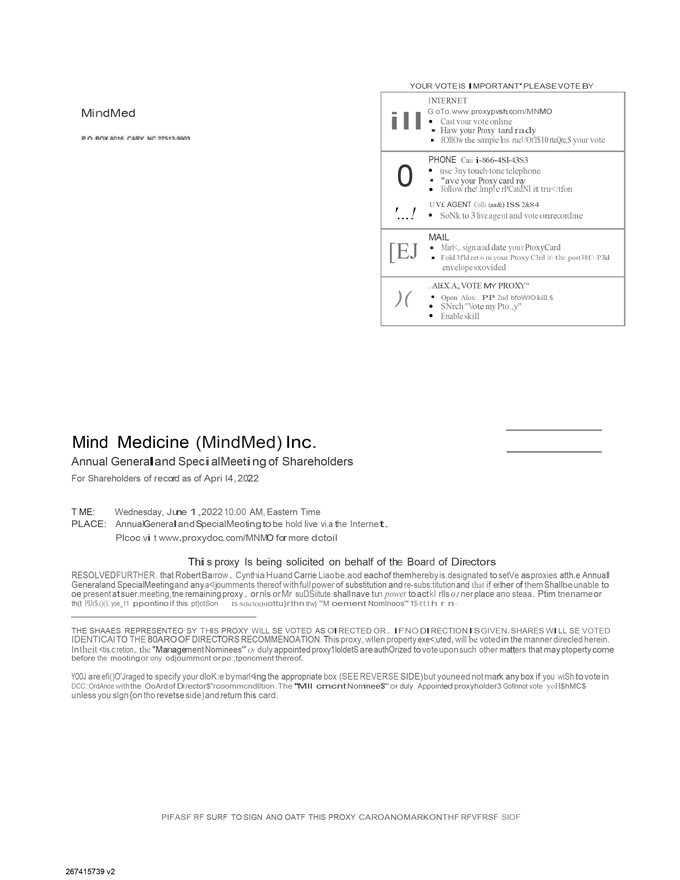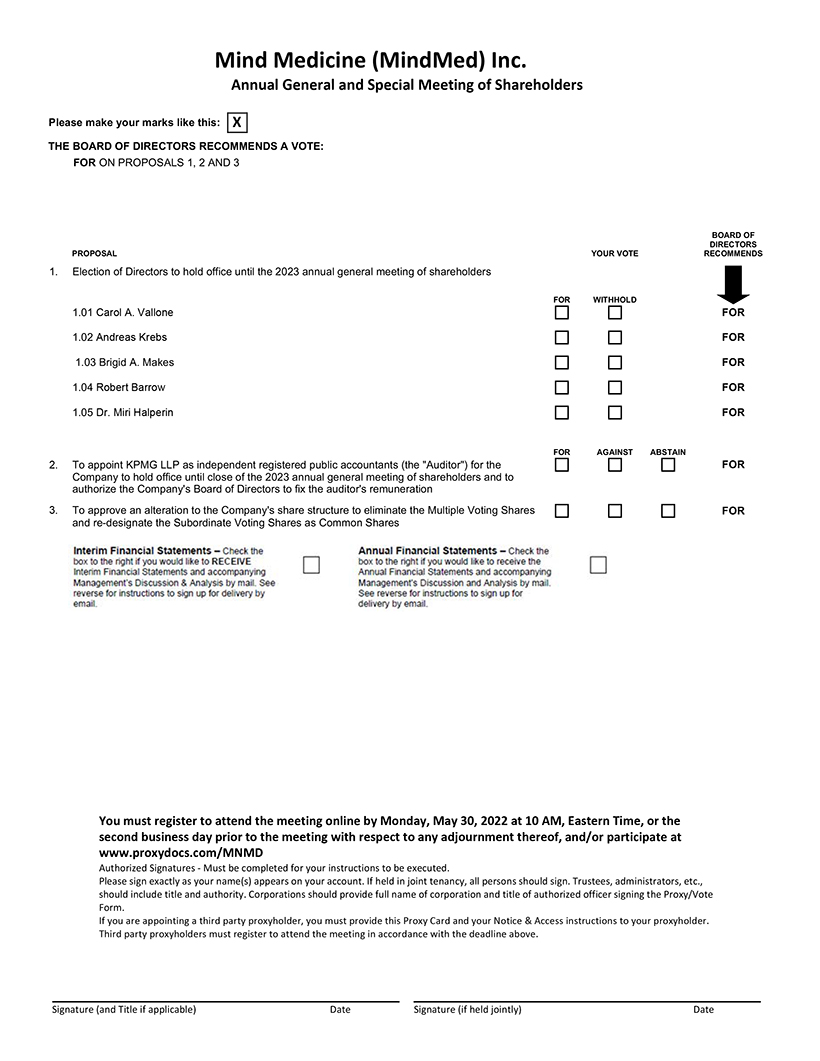
MIND MEDICINE (MINDMED) INC.
CORPORATE GOVERNANCE GUIDELINES
| Doc. No. G-CG-001 | Rev. No. 001 | Effective: 01/01/2022 |
The Board of Directors of Mind Medicine (MindMed) Inc. (the “Company”) has established the following guidelines for the Board’s conduct and operation. These guidelines are designed to give directors and management a flexible framework for effectively pursuing the Company’s objectives for the benefit of its stockholders. That is why these guidelines should be interpreted in the context of all applicable laws, the Company’s charter documents, and other policies.
| I. | BOARD COMPOSITION AND SELECTION |
A. Size of the Board. The Board will establish the number of directors in accordance with the amended and restated certificate of incorporation and the amended and restated bylaws of the Company, as each may be further amended from time to time. The Nominating and Corporate Governance Committee will periodically review the appropriate Board size, which may vary to accommodate the availability of suitable candidates and the Company’s needs.
B. Independence of Directors. The Board will have a majority of independent directors, subject to any exceptions permitted by the applicable listing standards of any stock exchange that lists the Company’s capital stock (the “Exchange”), the Securities and Exchange Act of 1934, as amended together with the rules promulgated thereunder, and any applicable Canadian securities laws and regulations. To determine independence, the Board will consider the definition of independence in the applicable listing standards of the Exchange and Canadian securities regulations, and other factors that will contribute to effective oversight and decision-making.
At times required by the rules of the Securities and Exchange Commission and applicable Canadian securities regulators or listing standards of the Exchange and based on information provided by Board members and advice of counsel, the Board or the Nominating and Corporate Governance Committee will affirmatively determine director independence. In accordance with applicable rules and Company policies, the Board will confirm that each director designated as independent has no material relationships to the Company (either directly or with an organization in which the director is a partner, stockholder or officer or is financially interested) that may interfere with the exercise of their independence from management and the Company. Directors may be asked from time to time to leave a Board meeting when the Board is considering a transaction in which the director (or another organization in which the director is a director or officer) has a financial or other interest.
The Audit Committee shall review and approve any proposed related party transactions in compliance with the Company’s policies and Exchange rules.
C. Management Directors. The Board anticipates that the Chief Executive Officer will serve on the Board. The Board also anticipates that other members of management who can assist the Board in fulfilling its responsibilities based on their experience and role at the Company may serve on the Board, under a condition that the majority of directors will remain independent as stipulated above.
D. Board Leadership. The Board may select a chairperson and/or vice chairperson of the Board in the manner and on the criteria that the Board deems appropriate. In the event that the Company does not have an independent chairperson of the Board, the independent directors will designate a lead independent director. The name of the chairperson or lead independent director will be listed in the Company’s proxy statement. The
2


